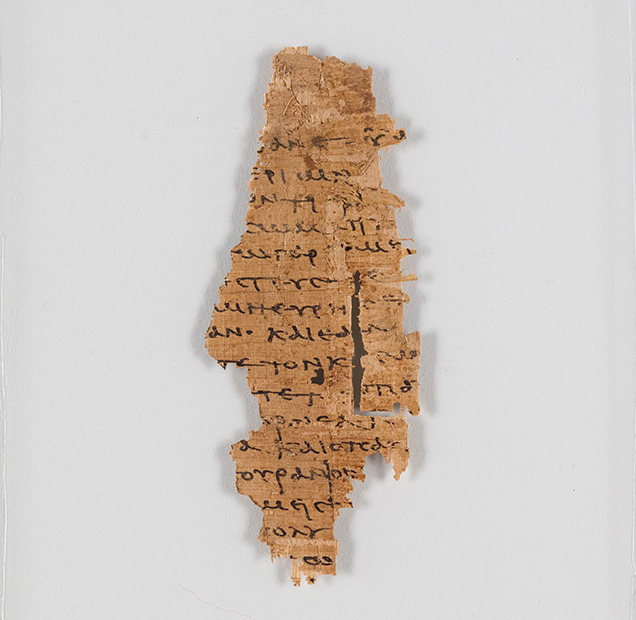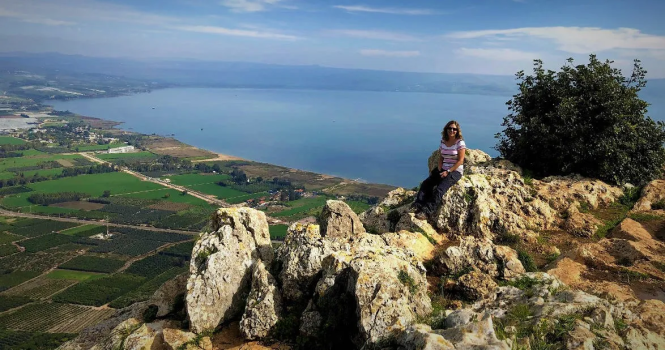Sorry-- I didn't mean to step on this thread with another.
 A photo from 2012 of P.Oxy. 5575 (the recto). Photo: Ardon Bar-Hama
A photo from 2012 of P.Oxy. 5575 (the recto). Photo: Ardon Bar-Hama
A papyrus fragment containing quotes from Matthew, Luke, and the Gnostic Gospel of Thomas was recently published in the most recent volume of the Oxyrhynchus Papyri (volume LXXXVII). The papyrus dates to the late second or early third century and is part of the collection of over 500,000 papyri discovered at Oxyrhynchus, Egypt in the late 1800’s and early 1900’s by Bernard Grenfell and Arthur Hunt. The fragment, known by it’s technical designation P.Oxy. 5575, contains small portions of Matthew 6, Luke 12 and the Gospel of Thomas 27. It is the oldest manuscript with text from Matt 6 and the earliest witness to the Gospel of Thomas. The Gnostic Gospel of Thomas is a later, second-century work that purports to contain secret sayings that Jesus gave only to Thomas, and it is not considered an authentic record of actual sayings by the historical Jesus described by the canonical Gospels from the first century.
I love the editorializing regarding the Gospel of Thomas. lol (not considered authentic) -- but the fragments of Matthew and Luke? Authentic!
2. New Papyrus Published Containing Sayings of Jesus (Sept. 2023)
 A photo from 2012 of P.Oxy. 5575 (the recto). Photo: Ardon Bar-Hama
A photo from 2012 of P.Oxy. 5575 (the recto). Photo: Ardon Bar-HamaA papyrus fragment containing quotes from Matthew, Luke, and the Gnostic Gospel of Thomas was recently published in the most recent volume of the Oxyrhynchus Papyri (volume LXXXVII). The papyrus dates to the late second or early third century and is part of the collection of over 500,000 papyri discovered at Oxyrhynchus, Egypt in the late 1800’s and early 1900’s by Bernard Grenfell and Arthur Hunt. The fragment, known by it’s technical designation P.Oxy. 5575, contains small portions of Matthew 6, Luke 12 and the Gospel of Thomas 27. It is the oldest manuscript with text from Matt 6 and the earliest witness to the Gospel of Thomas. The Gnostic Gospel of Thomas is a later, second-century work that purports to contain secret sayings that Jesus gave only to Thomas, and it is not considered an authentic record of actual sayings by the historical Jesus described by the canonical Gospels from the first century.
I love the editorializing regarding the Gospel of Thomas. lol (not considered authentic) -- but the fragments of Matthew and Luke? Authentic!






